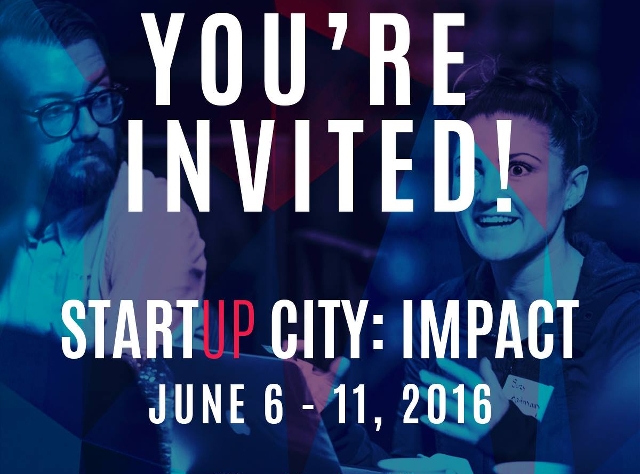Tapping into a growing focus on ‘purpose-driven’ startups, the Vancouver Economic Commission and Spring Activator are presenting Startup City: Impact on June 6 to 11. The multi-venue event is showcasing what’s happening on the local scene already and helping to educate prospective entrepreneurs who are also hoping to take on the world’s challenges by thinking globally and acting locally – and ultimately, forging new economic opportunities.
The theme of the event is certainly trending, as more and more Vancouver-based ventures are putting ‘impact’ at their core. VEC points to a recent Sauder School of Business study to back that up: “British Columbia’s social venture labour market has grown by 35 percent with sector earnings exceeding $500 million dollars annually.” And Vancouver has a high number of impact businesses that differentiate it from other tech hubs.
VEC’s Sustainable Community Development Manager Pietra Basilij points to a number of companies that are great examples of impact-driven firms: “You see it in very different sectors. In the transportation space, some local tech companies are creating smarter logistics systems to help take more vehicles off the road while delivering services more efficiently. In the cleantech space, you’ve got companies tackling climate change, and then companies like Semios, that has a solution for getting rid of pests without using pesticides. TSO Logic does analytics on server farms to lower energy use in keeping with demand. In app development, Peace Geeks are doing great work in the development space.”
Startup City: Impact will give budding founders a chance to learn directly from entrepreneurs who can share authentic experiences, not just advice, she notes. “The Mythbusting Mixer on Wednesday night, in particular, is an opportunity for those just getting started to get 10-minute mentoring sessions with experienced entrepreneurs who have had success in the impact space.”
While impact businesses are not an entirely new concept “by any stretch,” Basilij acknowledges, “it is something we’re seeing more frequently. You used to see a business typically build a product, make a profit and then give back philanthropically. The change has come as startups build the impact into the core of their business model. It used to be that we all agreed that the number one purpose for a business was making money, but especially among millennials, they’re now saying that starting a business is about making a difference in the world.”
Companies don’t necessarily need to disrupt an entire sector to make a change, as positive impacts may not immediately create obvious shifts – but every bit counts, suggests Keith Ippel, CEO of Spring Activator. “Apart from offering purpose-driven products or services, companies can also weave purpose into the way they operate, from supply chains to delivery to community engagement.”


